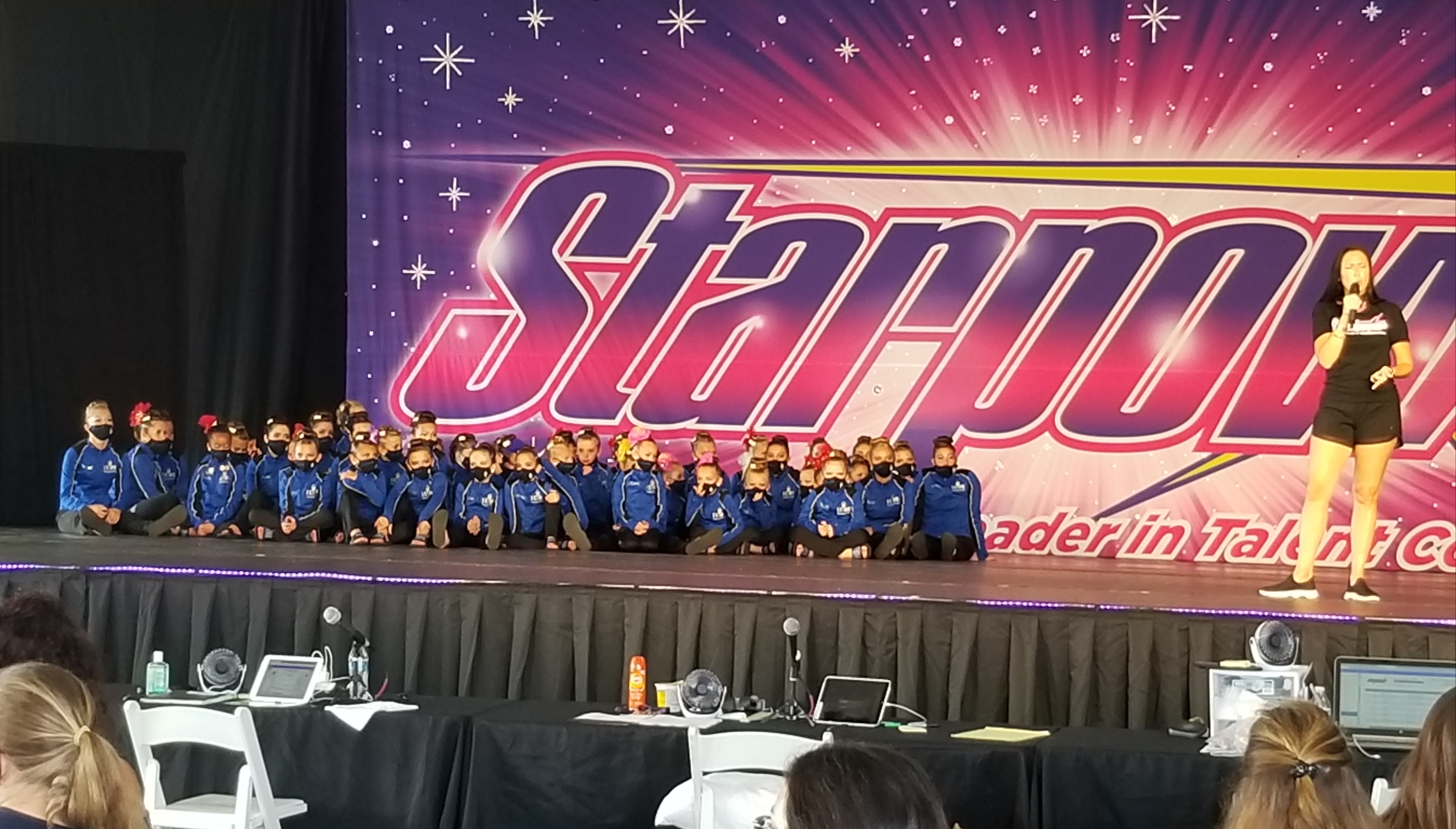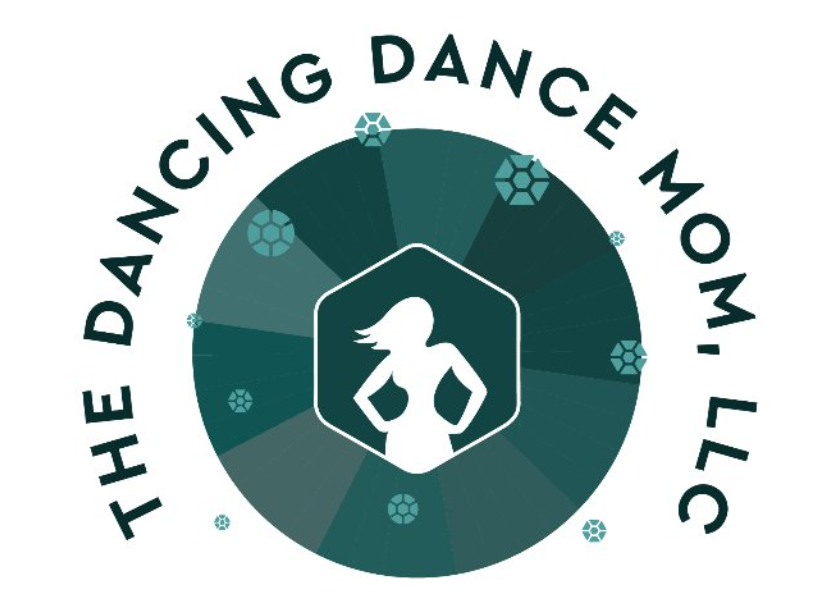With the traditional structure of competitions a distant memory (for now), competitions have turned to block scheduling to align with safety protocols during the COVID pandemic. In Part 1, I discussed the cons shared with me with contributors to my Facebook page. Here are the rest of the cons, as well as the pros!
Cons (Continued)
Awards, Energy, and Judging
The first time I entered a dance competition venue for my daughters’ team, I was struck by the electric energy that coursed through the audience. The cheers, screams, applause, and roars from the spectators is something that you need to experience yourself to truly understand. I’ll never forget those times when total strangers from other schools would turn around in their seats to compliment our dancers to us; these moments filled us with pride in our kids and our school. With only one school’s audience there at each time, the energy level can be significantly reduced.
Questions have surfaced about how fairly the judges can evaluate each routine when they’re seeing numbers in the same category hours, if not days, apart. Judges are human, after all, so their consistency may not be as rock-solid as it would be in the traditional format. Asking them to remember how they judged an advanced junior duo on Friday so they can assess another advanced junior duo on Sunday with the same “yardstick” is a tall order, making it a legitimate concern for all stakeholders.

For obvious reasons, the emcee cannot announce overall placements until all of the routines have left the floor. So in all likelihood, you’ll need to wait until the end of the last day of the event to find out how everything shook out for the overalls, title winners, etc. Most competitions have live-streamed a virtual awards show for everyone to see. Aside from the technical difficulties that have plagued some virtual awards presentations, many of these do not include all of the placements and awards that would typically be announced during an in-person ceremony. Both times, we’ve had to follow up with the competition’s online posting to find out how many of our routines had done. It’s a minor concern that is easily fixed, but it’s just one more step we have to take.
Pros
Some parents absolutely love block scheduling, and hope it’s here to stay forever! Here are some of the reasons they’re perfectly happy with this “new normal.”
In and Out
Gone are the days when you would have to allocate three, four, or five days for a dance competition, at least for now. With block scheduling, your studio’s entire slate of routines are done in about a half a day. This means that you no longer need to plan multiple meals over multiple days during an out-of-town event! One year, we participated in NYCDA Nationals in New York City; while it was a great experience, scrambling to find food that would satisfy two picky little girls (and paying out the nose for it) it’s not something I would want to repeat if I could avoid it. Because you’ll need to be at the venue for a shorter duration of time, more of your weekend is freed up.
The Home Team
When the only routines in the block come from your studio, the only spectators there are your own! Knowing that the audience is packed with their most loyal supporters can give the dancers the confidence they need to power through their performance. Also, being able to focus on their own numbers may help them to stay “in the zone.” One time, I brought Thing 1 to a competition to compete her solo (she missed out earlier in the season due to an injury, so we did one independently to make it up). As we walked into the dressing room, she saw two dancers from another studio that had placed higher than her at a previous competition. Immediately, she started getting upset, thinking she had already lost. That day, she put out the worst performance I had ever seen her do (and she knew it); she had let the mere sight of other dancers get in her head, and was completely psyched out by their presence alone.

Often, my girls’ solos and duos compete on a day apart from the group dances. As a result, many of their teammates have not seen these routines. With block scheduling, everyone from your home studio is there! For the two events we have done with this format, my girls had the benefit of having every one of their supporters there to see them work. Having the whole team present to pump each other up really adds to the overall enthusiasm.
Elbow Room
Have you ever been to a dance event where you thought, “Good gravy, there is NO ROOM!” Sure you have! In years past, dance moms would bring sweatshirts, bags, everything short of the kitchen sink to place on a chair to “save” it during convention classes. I can’t count how many times I’ve had to camp out on the floor! At Jump one year, I constructed a pretty elaborate labyrinth out of bags, chairs, and pop-up laundry hampers in the dressing room to save space for our dancers to get ready for the closing show. With block scheduling, the dancers have so much more space to get themselves ready.

The same principle goes for the audience. In the past, parents went to great lengths to save chairs for their family and friends to watch the performance. I have seen some arguments born from the whole seat-saving dynamic; with block scheduling, there are generally more chairs available without the need to throw down with other studios’ parents.
The Bottom Line
So yeah, I saved the most important point for last. Regardless of which side of the debate you’re on, everyone can agree on this: Block scheduling is allowing us to compete. Without this revamped format, it is quite possible that many states would not permit these events to take place at all. It is one of the safety measures that competition companies can put in place that help them comply with social distancing regulations, so they’re willing to use it when necessary to maintain social distancing measures.
As of this writing, I have only heard of one competition that has not used the block scheduling format (state and local guidelines play a huge role in what is and what is not allowed). If you’re not in favor of it, you probably at least agree that it is here to stay for the foreseeable future. Even if you consider it to be a necessary evil, at least it is allowing many dancers to have the opportunity to perform for a live audience again. And that’s really all our kids want, isn’t it?
Stay safe and healthy, dance families!
Work hard, have fun! – Danielle


I agree with u on all fronts and can certainly relate to that i wanna bring out one point about awards being left that somehow need to touch base with competition helder to find out how the dancers do. This is a big gap in the industry alot of the competition follow up and deliver what they promise you when they want you to eegister but doesnt deliver. Especially virtual stuff. U hear nothing afterwards, they say will have critiques and scores but they do t even send anything to studio, if that’s already happening how can they follow up with big competitions with many studios by block.
At the end of the day dancers goes to competition they need some form of recognition and goal , success, feedback, not just i paid and participate in this competition.
Do u feel frustrated that the industry now is saturated with comps like that that ruines the whole dance competition experience ? Can u write something about that and share your insight and thoughts?
Since the pandemic, we’ve only done Starpower (in person, with block scheduling), and the virtual competition that Impact Dance Adjudicators offers. We got great critiques from IDA, so I can’t say that we’ve been disappointed with the one virtual competition we did. If you can email me with some names of the events that you found disappointing, that would give me a reference point to start researching with. My email is thedancingdancemom@gmail.com if you’re interested. Thanks so much for your feedback!
That is so great that there is a way to perform live and that it doesn’t take up your whole weekend too. I am sure the girls are thrilled to be able to perform again. These kids need to have some kind of normalcy again!
Sounds like it’s a great way to save dance competitions. Your girls look great in those outfits!
I wonder how dance competitions will be next year?
So interesting to see how so many venues are adjusting!
More elbow room for the win! Seems like there are definitely ups and downs to block scheduling for dance.
I am glad dancers are still able to compete – especially if it is something they love doing.
I am for anything that will safely allow people to interact. Dance should be shared with the masses as it is a beautiful form of art. So happy the dancers are able to compete safely. Thanks for sharing.
That’s so great that the organizers were able to figure out a way for everyone to continue in the dance world safely. Humans are so innovative and we can get through so much when we do it together. I feel like I’d be on the side of block scheduling, I’ve never been a fan of crowds, haha.
Lots of cons and a few pros, but the biggest good side is being able to compete at all!
I would love having 1 half-day instead of 4 days! But I realize it comes with challenges too. But you’re right, at least they are getting to dance!
It sounds like you can save a lot of money with block scheduling; that’s great.
I’m thankful you guys are still able to compete. Personally, I’m not feeling the block scheduling. Thanks for sharing both pros & cons!
If its something the kids really want to do, then why not? They are getting to dance, and sounds like it is a money and time saver too.
I think getting to preform for an audience is a big benefit!
Making it work and learning along the way. I need to be better at block scheduling. It works in so many areas.
Sounds like it is working and that their are positives from the changed format. Hope the girls are having a great time dancing!
I’m thankful your girls get to compete. That’s wonderful. The schedules are so tough, but I think the kids are just happy to be able to do it. 🙂
Accommodations to gather safely can be a mixed bag. Glad you can at least compete.
Awe! Block scheduling is my favorite! Makes me effective and productive!
If I was a judge, there is no way I woudl be able to judge fairly if I didn’t see the numbers back to back. I think that’s a really good point.
Wouldn’t it be wonderful if a configuration could be created that allows some of those powerful positives aspect to stay? Like regarding seating to watch your team – would it be possible to reserve the first few rows for supporters of the performing group? That would allow family and friends to rally for their team, get great photo and video shots, and to be the faces the dancers would see in the crowd.
interesting post, I had no idea this world of dance was so intricate.
Hope it works out for the dancers. Block scheduling is a great personal time management tool!
It’s so great to see that they have been able to bring competitions back. I can see where block scheduling can create issues, but having your weekend freed up more is awesome too! I can’t even begin to total up the hours we spent at those events.
Good thoughts on the topic!
The bottom line really is it, isn’t it? With the block scheduling the competitions can continue and that is the most important thing!
Goodness! I don’t know if i could handle everything over 4 or 5 days! While crazy, thinking block scheduling is the way to go! Most important part is that everyone has fun and tries their best!
Great for productivity & time management.The kids get to dance & have fun!